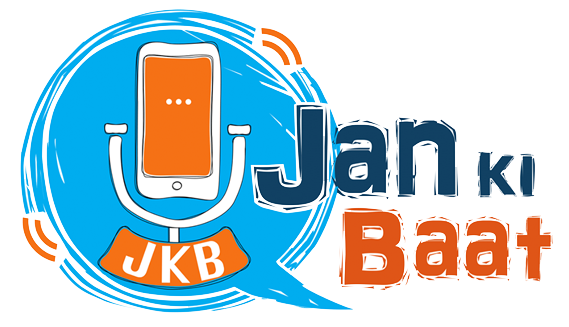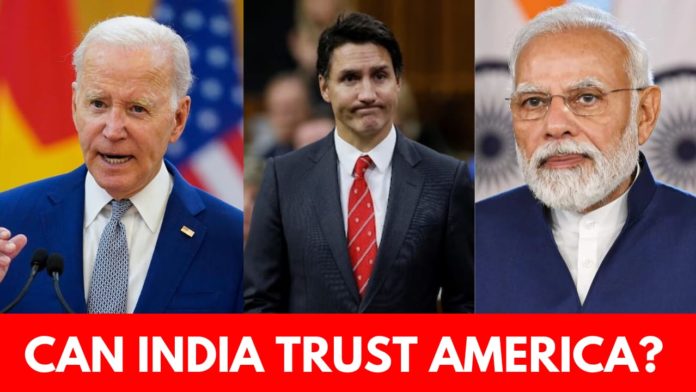The unfolding India-Canada diplomatic faceoff has put the spotlight on the involvement of American intelligence agencies, bringing to the fore questions about India’s trust in the United States. Sagarika Mitra, Content Head of JAN KI BAAT explains the geopolitical dynamics in this article
Western media reports have revealed that U.S. agencies shared intelligence with Canada regarding the killing of Khalistani terrorist Hardeep Singh Nijjar. A New York Times report, citing unnamed Western allied officials, indicates that American spy agencies provided information to Ottawa following Nijjar’s death. However, it was Canada’s investigative efforts that culminated in Justin Trudeau levelling accusations against India for allegedly plotting the killing. While the revelation of American involvement in intelligence-sharing between the U.S. and Canada may not come as a shock, given their membership in the Five Eyes alliance, but it has ignited global discussions about the United States’ strategic and diplomatic relationship with India in light of this complex situation.
Since Canadian Prime Minister Justin Trudeau leveled accusations, at least five senior U.S.diplomats have issued public statements on the ongoing issue. On the surface, the statements from U.S. officials have maintained a measured tone. However, the stance taken by the United States carries a nuanced message for India. Let’s delve into the statements made by U.S. diplomats in response to Canada’s allegations against India.
September 19, 2023: John Kirby, National Security Council Coordinator for Strategic Communications, emphasized the need for India’s cooperation in the investigation. He underlined the importance of a transparent and thorough handling of the case, expressing the desire for unhindered progress in the investigation to unveil the facts.
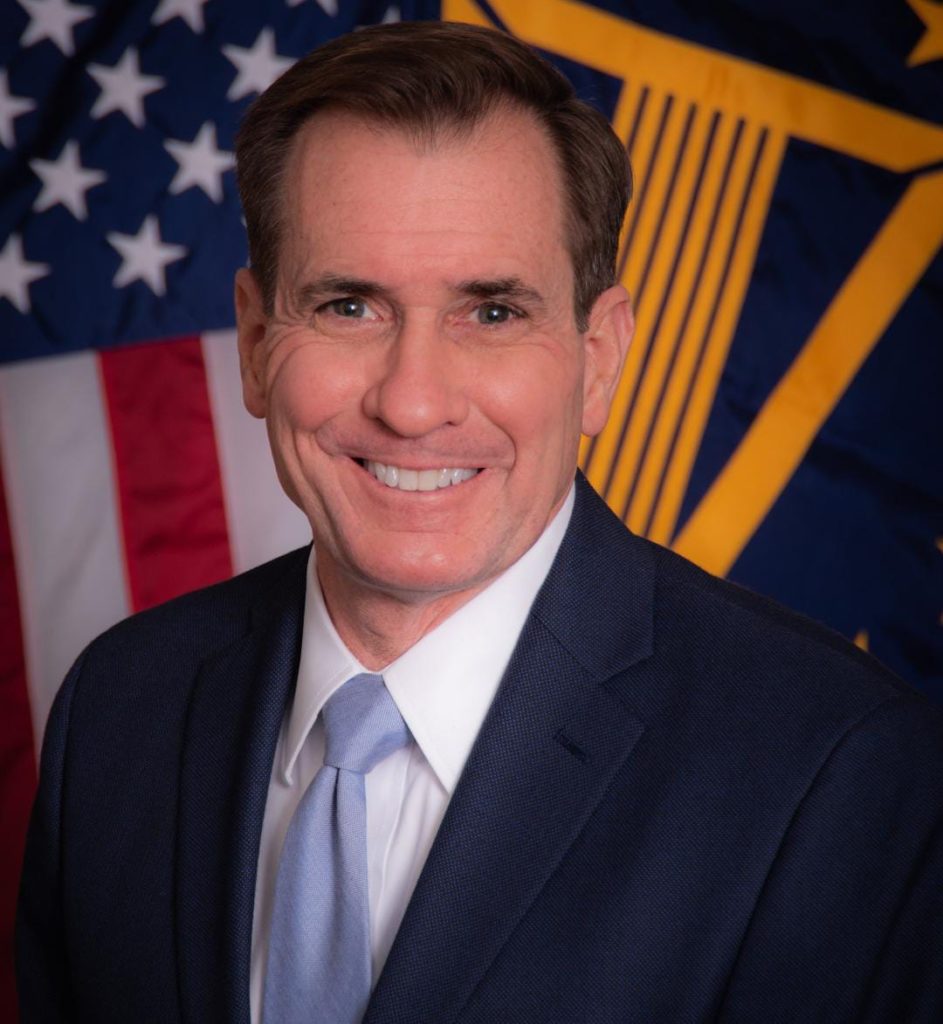
September 20, 2023: Eric Garcetti, U.S. Ambassador to India, acknowledged the troubling nature of the allegations while highlighting the significance of ensuring that perpetrators face justice, given the active criminal investigation
September 21, 2023: Jake Sullivan, U.S. National Security Advisor, emphasised that no country should receive special exemptions for certain activities. He voiced support for the ongoing investigation and confirmed that the U.S. has been in contact with the Indian government regarding the matter.
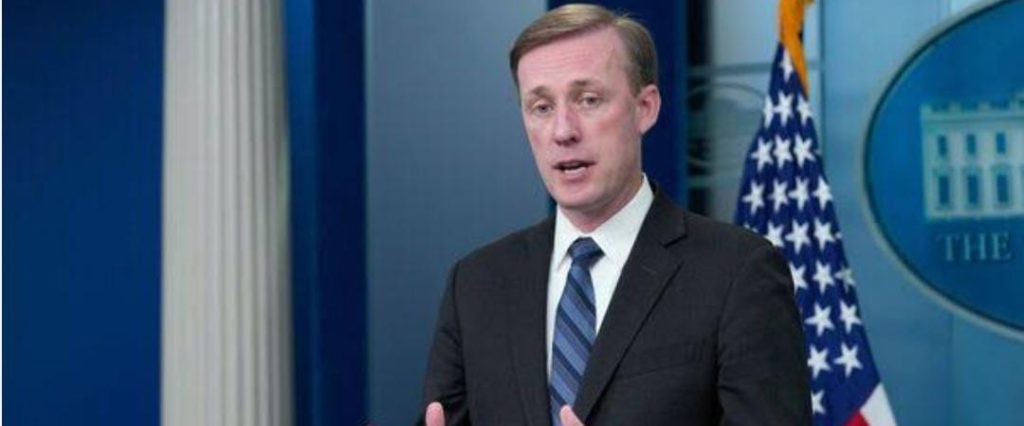
September 22, 2023: David Cohen, U.S. Ambassador to Canada, noted that shared intelligence among Five Eyes Partners contributed to Canada’s assertion in the case
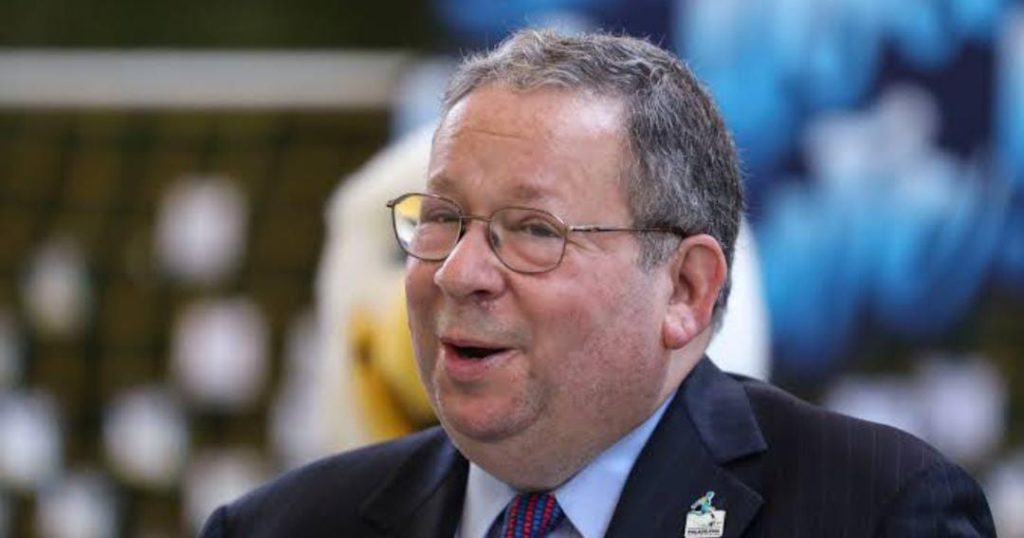
September 22, 2023: Antony Blinken, U.S. Secretary of State, highlighted the close consultations and coordination between the U.S. and its Canadian counterparts in addressing this issue. He stressed the importance of India collaborating with Canada in the investigation, emphasizing the pursuit of accountability as the investigation unfolds
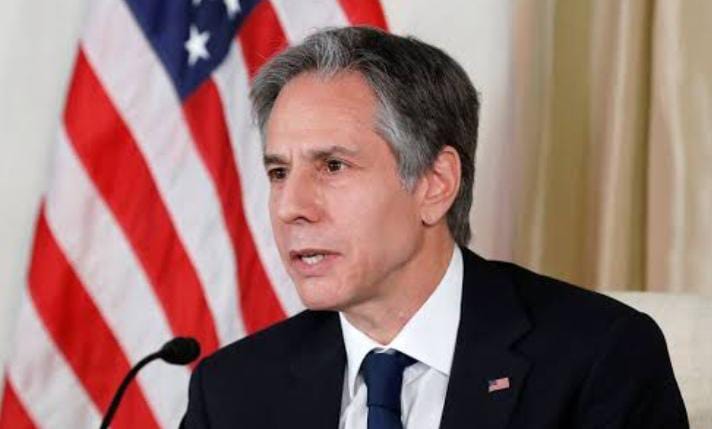
The current geopolitical landscape is marked by fluidity and complex dynamics, with nations strategically positioning themselves to address emerging challenges. Central to this evolving landscape is the role of the United States, which finds itself in a precarious balancing act, particularly in its relationship with India.
In the face of the formidable ‘Dragonbear’ alliance between China and Russia, the United States increasingly recognises the importance of India as a key partner in the Indo-Pacific region. India’s strategic location and its unique competencies regarding China present it as a valuable ally for the United States. This shift underscores a critical point: the US needs India more than ever in the context of these emerging global dynamics.
However, India’s approach is characterised by a commitment to preserving strategic autonomy. While deepening ties with the U.S across various domains such as the economy, trade, industry, and defense, India remains steadfast in its quest for self-determination on the world stage. This stance is an intrinsic part of India’s foreign policy and national identity.
Canadian Prime Minister Justin Trudeau’s geopolitical fight with India is seemingly driven by domestic considerations in Canada and it clearly reflects a misjudgment of India’s current geopolitical position. India has evolved significantly over the past decade, and its global standing has grown in parallel. India is a valuable ally for the United States. This shift underscores a critical point: the US needs India more than ever in the context of these emerging global dynamics.
While Canada has been a focal point due to its perceived role as a safe haven for Khalistani operatives, the United States has not escaped scrutiny either. The presence of most-wanted Khalistani terrorists on US soil, though not as publicly pronounced as in Canada, raises questions. Recall the Khalistani attack on the Indian consulate in San Francisco – no arrests have been made, and the National Investigation Agency (NIA) is independently seeking the perpetrators.
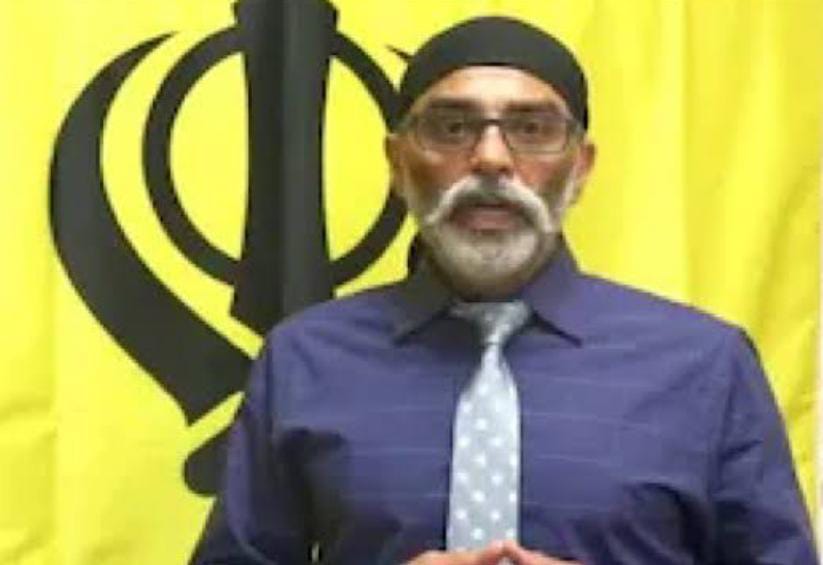
There have been theories doing the rounds that G.S Pannu, Chief of outlawed outfit – ‘Sikhs for Justice’, a US citizen and Khalistani terrorist who openly desecrated the Indian flag and called for assassinations of Indian diplomats, may have affiliations with US intelligence. This revelation adds a layer of complexity to the situation.

However, India has made its stance clear by confiscating Gurpatwant Pannu’s properties in the country, suggesting that he is no longer untouchable. Additionally, Sikh Gurudwaras in Surrey removed extremist hoardings, signaling a potential shift in Canada’s approach towards extremism.
It’s worth noting that, historically, the United States had close ties with Pakistan, which played a role in fomenting extremism in Indian territories of Kashmir and Punjab. While the scope for such activities has diminished, the suspicion remains that Washington might still cultivate Khalistanis for various purposes.
Henry Kissinger’s famous quote, ‘To be an enemy of America can be dangerous, but to be a friend is fatal,’ resonates here.
In a world where interests intersect and alliances shift, it’s prudent for India to maintain a cautious and skeptical stance, with Western powers. In doing so, it safeguards its own interests and sovereignty on the global stage.
